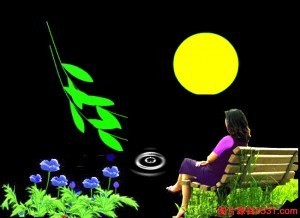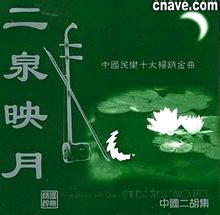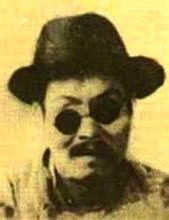
The Moon Reflection on the Second Spring 二泉映月
There are so much variety in Chinese music that it is sometimes hard to know where to begin to pick something special. However, today’s choice is an easy one, as it is simply one of the saddest, most moving Chinese music pieces you’re ever going to come across. Personally I don’t remember how many tears I have shed while listening to it, and it never failed to pluck my heart string, making the very core of my soul weep with sorrow.
 The story went that the world-renowned Japanese conductor Seiji Ozawa had once commented that Abing’s Moon Reflected on Second Spring should be heard while kneeling down. I agree with him. This music, usually played by Erhu, has so much soul and emotional depth that it seems to have gathered all of human misery and suffering in one melody. The life of the Chinese folk musician, 华彦钧 (Huà Yànjūn), more commonly known as 阿炳 (“Blind” Abing), have been retold in a film, link below.
The story went that the world-renowned Japanese conductor Seiji Ozawa had once commented that Abing’s Moon Reflected on Second Spring should be heard while kneeling down. I agree with him. This music, usually played by Erhu, has so much soul and emotional depth that it seems to have gathered all of human misery and suffering in one melody. The life of the Chinese folk musician, 华彦钧 (Huà Yànjūn), more commonly known as 阿炳 (“Blind” Abing), have been retold in a film, link below.
二泉映月(故事片)1979

The Blind Folk Artist Abing
Born on the 17th August 1893, Abing lived through Opium Wars as well as the WWII, some of the most tumultuous periods in modern Chinese history. He suffered from syphilis and became blind in his mid 30s. He roamed the streets, playing his music on Erhu and Pipa and other Chinese instruments. A highly accomplished musician, he composed over 270 folk music pieces, and almost all of them have been lost forever. Thanks only to two professors from the Central Music Conservatory, who made a recording of six of his songs in 1950, and shortly after, Abing passed away. Read the full story of Abing Here.
Among Abing’s recordings which survived, Moon Reflection on the Second Spring is the most haunting and best known. Time for you to check it out.
二泉映月 / 中央民族乐团+(宋飞+ Saxophone 范圣琦) 2009
二泉映月, 許可二胡獨奏 – XuKe Erhu Solo accompanied by a beautiful children’s choir.
 newest »
newest »
 newest »
newest »
 newest »
newest »
Elizabeth